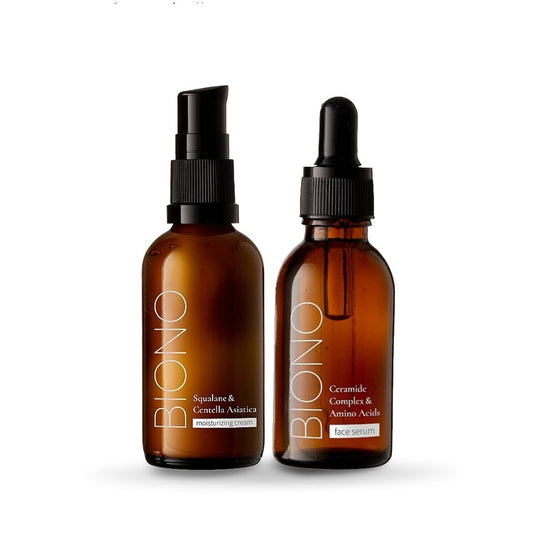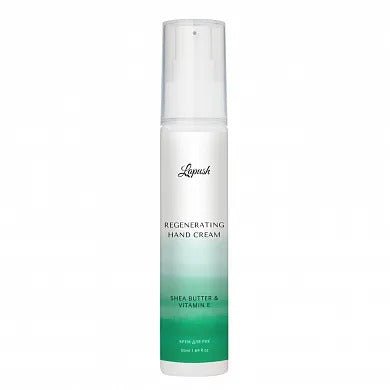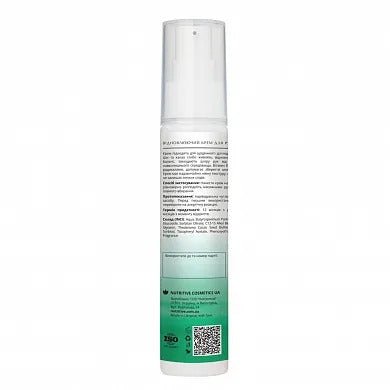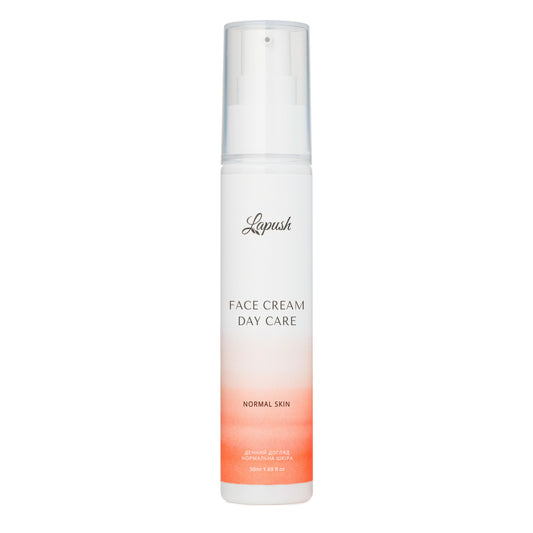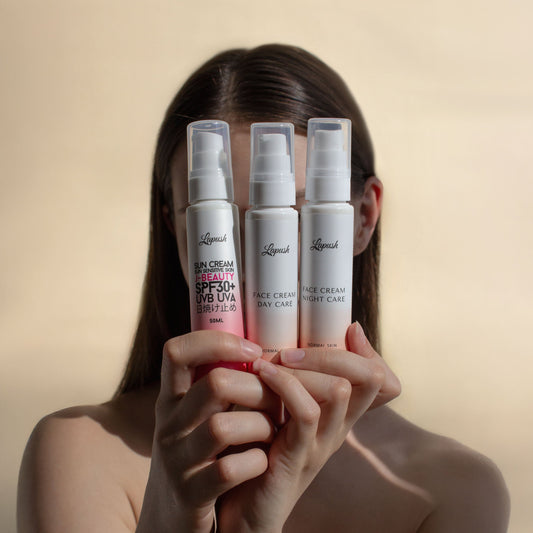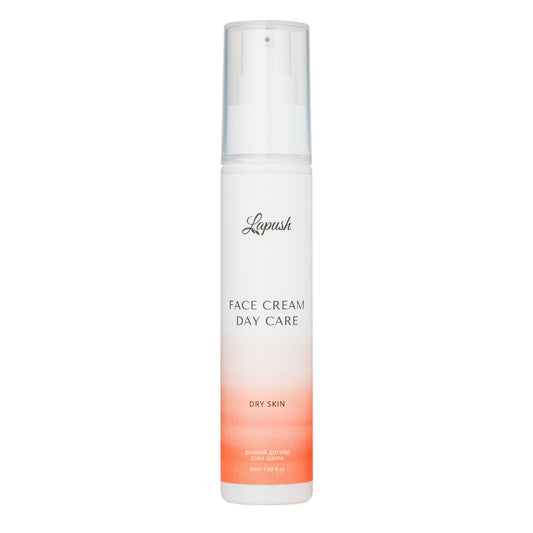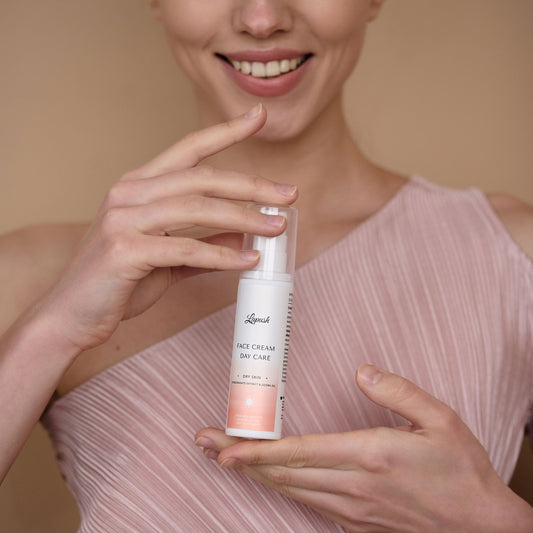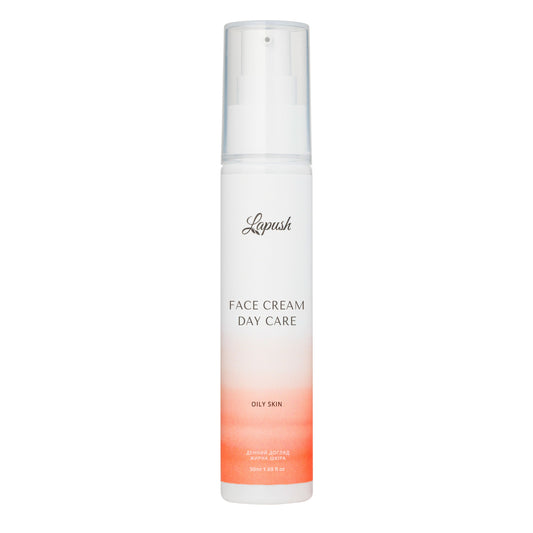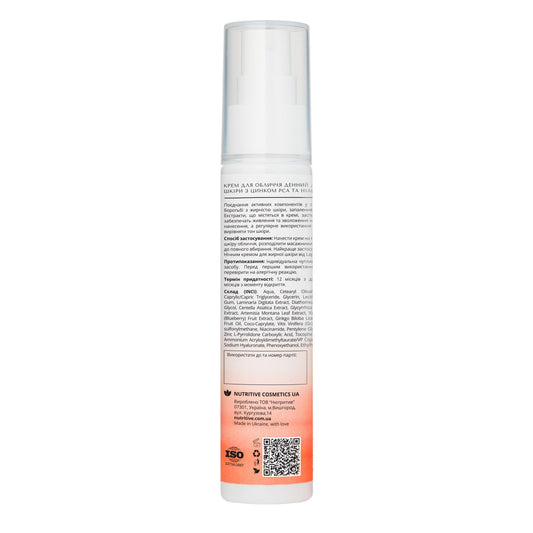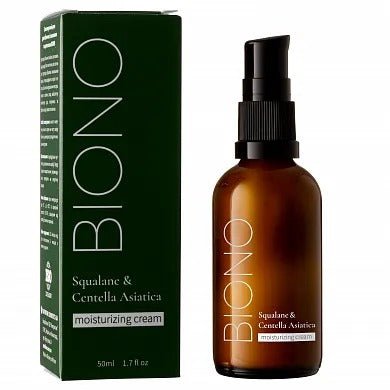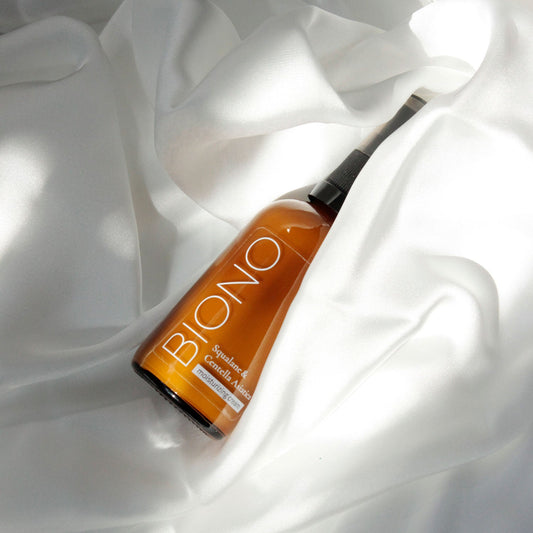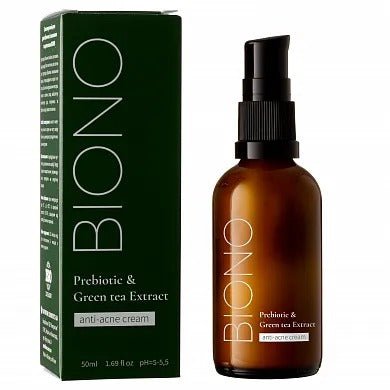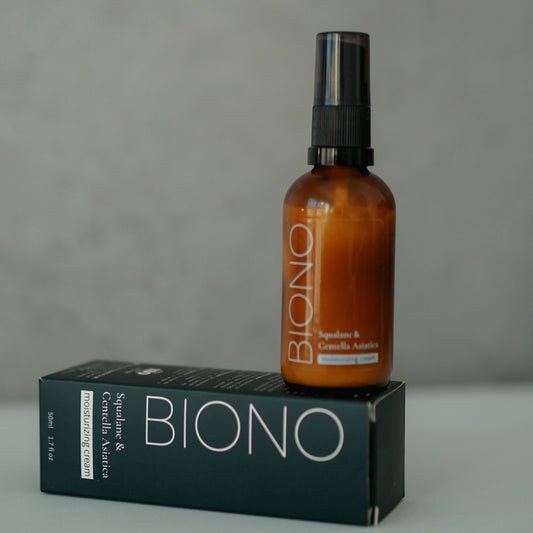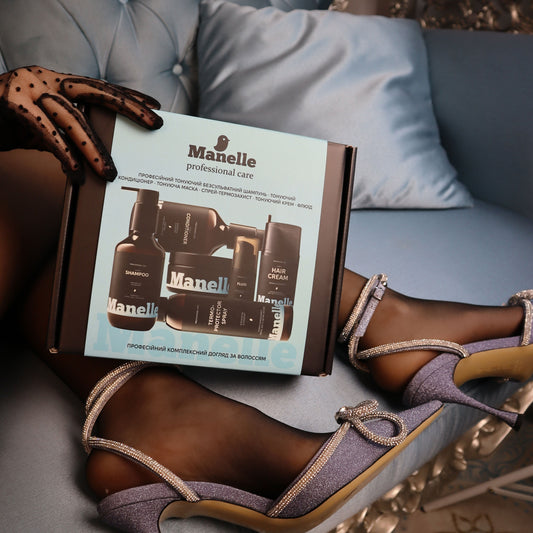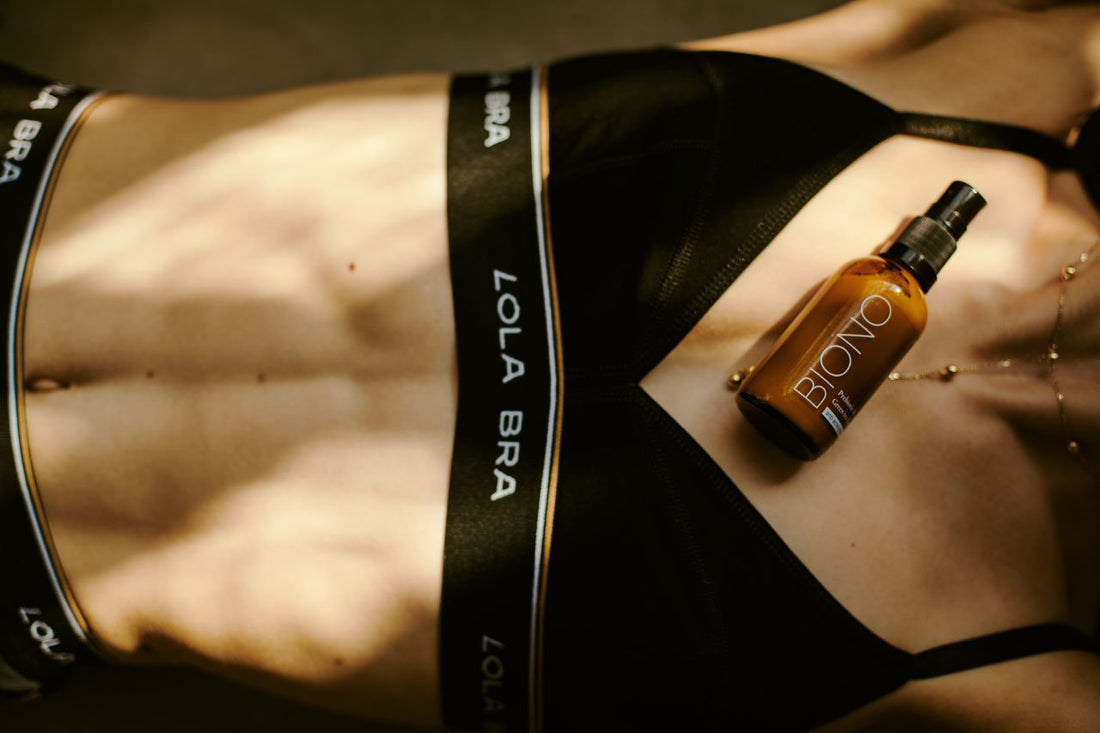
Natural cosmetics without parabens: everything you need to know before buying
The modern cosmetics industry is experiencing a real revolution of conscious consumption. More and more people are paying attention to the composition of cosmetics, looking for alternatives to traditional formulas with synthetic preservatives. Paraben-free face cream has ceased to be a niche product and has become a full-fledged answer to the needs of those who care about the health of their skin and the environment.
Paraben-free cosmetics: what traditional products hide
Parabens are a group of synthetic preservatives that have been used in cosmetics for decades as reliable "guardians" against bacteria and fungi. Think of them as invisible sentinels standing guard over your cream, preventing harmful microorganisms from spoiling the formula. The most common members of this group are methylparaben, propylparaben, and butylparaben.
However, over time, scientists have begun to question the safety of these ingredients. Studies have shown that parabens can mimic the effects of estrogen in the human body, potentially disrupting hormone balance. This is especially important for women of reproductive age and people with sensitive skin who use cosmetics daily.
In addition, parabens have the ability to accumulate in body tissues. Like coins in a piggy bank, they gradually accumulate in our bodies, and the long-term effects of such accumulation are still being studied by scientists around the world.

Benefits of paraben-free cosmetics for skin health
Paraben-free cosmetics open a new chapter in skin care, especially for people with increased sensitivity. Natural preservatives act more gently, without disturbing the natural protective barrier of the epidermis. This means that your skin retains its natural ability to self-repair and protect itself from external aggressive factors.
People with problematic skin often notice significant improvements when switching to paraben-free cosmetics. The symptoms of irritation, redness, and inflammation are reduced. This is especially noticeable in the case of atopic dermatitis, eczema, and other dermatological problems when the skin requires the most delicate care.
Long-term use of paraben-free cosmetics helps maintain a healthy skin microbiome. Just like in the intestines, beneficial bacteria live on the surface of our skin, protecting it from pathogenic microorganisms. Natural preservatives do not disrupt this delicate balance, allowing the skin to function in its natural rhythm.
How to recognize a quality paraben-free cream
Choosing a quality face cream without parabens is a real art of reading labels. First of all, pay attention to the list of ingredients (INCI), which is usually located in small print on the back of the package. Quality manufacturers clearly label their products as "paraben-free" or "without parabens."
However, it is important to understand that the absence of parabens does not automatically guarantee a high quality product. Some manufacturers may replace parabens with other synthetic preservatives, which are not necessarily better. Look for creams with natural preservatives: vitamin E (tocopherol), rosemary extracts, grapefruit seed or essential oils.
Pay attention to the texture and scent of the cream. Natural formulas often have a thicker consistency and a delicate natural scent, unlike products with synthetic ingredients, which can have a pronounced perfume scent or, conversely, be completely odorless due to the use of synthetic fragrances.
The most effective alternatives to parabens in modern cosmetics
Modern cosmetic science has developed a wide range of natural alternative preservatives that effectively protect cosmetic formulas without potential health risks. One of the most popular is phenoxyethanol, a mild preservative derived from green tea that provides reliable protection against microorganisms.
Grapefruit seed extract is becoming a real hit in the world of natural cosmetics. This powerful antioxidant not only preserves the product, but also nourishes the skin with vitamins and minerals. Extracts of rosemary, thyme and other plants with natural antimicrobial properties work similarly.
Some brands are using innovative packaging systems, such as airless dispensers or one-way valve tubes, which minimize product contact with air and bacteria. This allows for a significant reduction in the amount of preservatives in the formula while maintaining the safety and efficacy of the product.
Main natural preservatives in cosmetics:
- Vitamin E (tocopherol) — antioxidant effect
- Rosemary extract — antimicrobial properties
- Potassium sorbate is a mild preservative.
- Sodium benzoate is a natural preservative.
- Glyceryl caprylate — emulsifier with preservative properties
Features of choosing a paraben-free cream
Oily and combination skin needs a special approach when choosing a paraben-free cream. These skin types are prone to comedones, so it is important to choose non-comedogenic formulas with a light texture. Water-based creams with mattifying ingredients such as zinc or kaolin are best suited.
Dry skin, on the other hand, needs intensive nourishment and hydration. Paraben-free creams for dry skin types often contain natural oils (jojoba, argan, shea), ceramides and hyaluronic acid. These components create a protective film on the skin's surface, preventing moisture loss and ensuring a comfortable feeling throughout the day.
Sensitive skin requires the most delicate care. When choosing a paraben-free cream for sensitive skin, avoid formulas with essential oils, synthetic fragrances, and active acids. Creams with minimal ingredients that contain soothing ingredients such as allantoin, panthenol, aloe, or chamomile extract are the ideal choice.

Myths and reality about paraben-free cosmetics
One of the most common myths is that paraben-free cosmetics have a shorter shelf life and spoil faster. In fact, modern natural preservatives can provide a shelf life of up to 24-36 months, which is quite enough for regular use. The main thing is to follow the storage rules and use clean hands when applying the cream.
Another common misconception is that natural cosmetics are less effective than traditional ones. This is completely untrue. Modern technologies allow us to create natural formulas with a high concentration of active ingredients, which often work better than synthetic counterparts.
Some consumers believe that paraben-free cosmetics are necessarily more expensive than regular ones. While premium natural brands can indeed cost more, there are a large number of affordable paraben-free cosmetic options on the market in various price categories. The main thing is to learn how to read the ingredients and make an informed choice.
How to properly care for your skin with paraben-free creams
Switching to paraben-free cosmetics can take some time, especially if you’ve been using traditional products for a long time. Start by gradually introducing new products, replacing just one product in your daily routine at first. This will allow you to monitor your skin’s reaction and avoid possible negative effects.
It is important to remember to store paraben-free creams properly. Avoid direct sunlight, high temperatures and humidity. The ideal storage location is a cool, dry room or even the refrigerator for particularly delicate formulas. Always close the lid tightly after use to minimize the product's contact with air.
Regular use becomes even more important when switching to natural cosmetics. Unlike synthetic products with an instant effect, natural ingredients work gradually, accumulating their effect in the deep layers of the skin. Be patient and give your skin time to adapt to the new care - the result will pleasantly surprise you.
Rules for the effective use of paraben-free creams:
- Apply the cream to cleansed, damp skin for better penetration.
- Use massage movements to improve blood circulation
- Don't mix too many different products at once
- Wait until completely absorbed before applying makeup.
- Perform a sensitivity test before first use.
- Store creams in a cool, dry place.
The future of natural cosmetics and innovation
The cosmetics industry is actively developing the direction of "green" cosmetics, investing billions of dollars in research into natural ingredients and environmentally friendly production technologies. Already today we see the emergence of innovative ingredients derived from seaweed, fermented plant extracts and even synthetic components created using biotechnology.
Personalization is becoming a new trend in the world of natural cosmetics. Brands are developing special applications and tests that allow creating an individual formula for a paraben-free cream, taking into account the characteristics of a specific skin type, climate and lifestyle of the user.
Packaging is also undergoing a revolution. There are biodegradable tubes, concentrated formulas that require less packaging, and refillable systems that allow you to simply refill your favorite cream without having to buy a new container every time. This is not only environmentally responsible, but also economically beneficial for consumers.
User reviews: experience switching to paraben-free cosmetics
Many people share positive experiences using paraben-free creams, especially those with sensitive or problematic skin. Users often report reduced irritation and improved overall skin condition after just a few weeks of regular use of natural products.
Of particular interest are the reviews of people with allergic reactions and dermatitis, who for years could not find a suitable cream. After switching to paraben-free cosmetics, many people note a significant reduction in itching, redness and peeling of the skin. Some consumers note that natural creams take longer to achieve visible results, but the effect is more persistent.
An interesting trend is the improvement in not only the condition of the skin, but also in general well-being. People note that after giving up products with parabens, they began to sleep better and suffer from fewer headaches. Although a direct connection is difficult to prove, many experts confirm the potential impact of synthetic preservatives on the overall health of the body.
Conclusions: a conscious choice for healthy skin
Choosing a paraben-free face cream is not just a fashion statement, but a conscious decision for the health of your own skin and the environment. Modern paraben-free cosmetics offer effective, safe and pleasant-to-use products for any skin type and budget.
It's important to remember that switching to natural cosmetics is a process that requires patience and experimentation. Every skin is unique, and what works great for one person may not work for another. Do your research, read labels, consult with your esthetician, and don't be afraid to try new products.
The future of the cosmetics industry definitely belongs to natural, environmentally friendly and safe products. By choosing a paraben-free cream today, you are not only investing in the beauty and health of your skin, but also supporting the development of responsible technologies that will make the world of cosmetics better for future generations.

